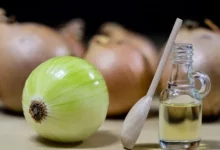How to Add Cancer-Fighting Fruits to Your Diet

Maintaining a healthy eating habit is very important for overall development and it is fundamentally even more important to prevent ongoing problems such as threatening growth. Various reviews have highlighted the beneficial effects of natural factors to reduce the risk of harmful development. Stacked with major enhancements, cell fortifications and phytochemicals, certain natural elements have outstanding harmful growth-fighting properties. In this article, we’ll explore how you can add these powerful natural elements to your diet routine and take proactive steps to reduce your risk, including in the emergency room. Tadalista 20 For Sale and Tadalista 60mg help to ED.
Berry:
Berries such as strawberries, blueberries, raspberries, and blackberries are important for their high cellular support content. The fortification of cells against free radicals in the body, reducing oxidative stress and cellular damage, which have been implicated in disease progression. Berries are also high in fiber, making them easy to handle and promoting a healthy stomach. Value berries as a side dish, in smoothies, or as a topping for cereal and yogurt.
Natural citrus products:
Natural citrus products, including oranges, lemons, grapefruits, and lemons, are good sources of the corrosive l-ascorbic acid and various phytochemicals. Corrosive l-ascorbic has the ability to act as resistance zones to support and support protected structures, waiting for the foundation by attracting harmful proliferating cells. In addition, citrus products naturally contain boosters such as limonoids and flavonoids that have anti-cancer properties. Incorporate natural citrus fruits into your eating routine by pureing them as natural, adding their juices to water or salad dressings, or adding their punch to recipes .
Apple:
The saying “A healthy lifestyle is the best medicine” contains some truths about the dangerous balance of development. Apples are high in fiber and cell-enriching substances, including quercetin and flavonoids, which have been linked to a clear reduction in cancer risk. As an apple reminder to your eating habits, enjoy them as a complimentary gift, add apple slices to a plate of greens or oats, or combine them in hot dishes.
Grape:
Grapes, especially red and purple grapes, contain resveratrol, a special cell promoter thought to have harmful anti-growth properties. Resveratrol controlled improvement in growth-threatening cells and reduced exacerbation. Snack on fresh grapes, freeze them to restore health or use them in greens and smoothies.
Tomato:
Tomatoes are high in lycopene, a carotenoid known for its cell-supporting properties. Lycopene has been linked to a reduced risk of prostate, lung, and stomach infections. Cooking tomatoes helps release lycopene, so use them in sauces, soups, and stews. Remember fresh tomatoes for a plate of greens or bread for extra nutrition.
Pomegranate:
Pomegranate is stacked with cellular fortifications, including ellagic killers and punicalagin, which have potent anti-cancer effects. Studies show that pomegranate extract can limit the progression of diseased cells, especially breast and prostate cancer. Participating in seeds or pomegranate juice as a complimentary gift, pairing into servings with leafy greens, or using the juice in smoothies.
Cabbage:
Although not naturally occurring, cruciferous vegetables like broccoli, cauliflower, Brussels sprouts, and cabbage are worth targeting for their harmful growth-fighting properties. These vegetables contain compounds called glucosinolates, which are converted into substances that help fight disease. Incorporate cruciferous vegetables into your eating routine by steaming, grilling, or sautéing and serving them on a plate of greens, fries, or as a side dish.
Pineapple:
Pineapple is a natural tropical element that gives it great flavor and contains bromelain, a protein blend with anti-cancer properties. Bromelain has been shown to have a calming effect and can sustain a developing threat aversion by reducing disturbances in the body. Enjoy new pineapple as a small chew, add it to your regular greens or smoothies, or use it in the perfect treat for beauty. Cherry:
Cherries, especially sour cherries, are a great snack and have appealing properties for growth. They are stacked with cellular fortifications, including anthocyanins and cyanidins, which have been associated with frustration in improving diseased cells. Cherries also contain melatonin, a synthetic substance that controls sleep and has cellular support as well as a calming effect. Appreciate the new cherries as a gift, add them to snacks or smoothies, or use them for a little fun.
Kiwi:
Natural kiwifruit is a crunchy, thick natural product containing high levels of the corrosive l-ascorbic acid, vitamin E, and various phytochemicals. These combinations add to their potentially evolving properties. In the same way, kiwi provides fiber, which makes it easy to handle and maintain a high weight. Enjoy kiwi fruit split, cut into portions to serve with greens or yogurt, or blend into an uplifting smoothie.
Mangoes:
Mangoes are delicious and offer clinical benefits, including anticipated anti-cancer effects. They are good at anti-malignant specialists, such as mangiferin, which is believed to be able to stop the growth of diseased cells. Mangoes also provide supplements A and C, as well as fiber. Enjoy fresh mango chunks, add them to your greens or salsas, or blend them into smoothies for a tropical twist.
Cranberry:
Cranberries are commonly known for improving urine health, but they also have disease-fighting properties. They are rich in disease-fighting specialists, including proanthocyanidins, which have been shown to hinder the growth of various dangerous cells. Cranberries can be enjoyed whole, drunk as a juice, or incorporated into sauces, salad greens, and warming dishes.
Papaya:
Papaya is a tropical natural product rich in corrosive l-ascorbic acid, vitamin a, and synthetic substances such as papain. It contains carotenoids, such as beta-carotene and lycopene, which have been linked to a reduced risk of clear cancer. Papaya also provides fiber, promotes processing, and promotes stomach stability. Supplement with peeled papaya, add it to regular green leafy vegetables, or blend it into a revitalizing smoothie.









